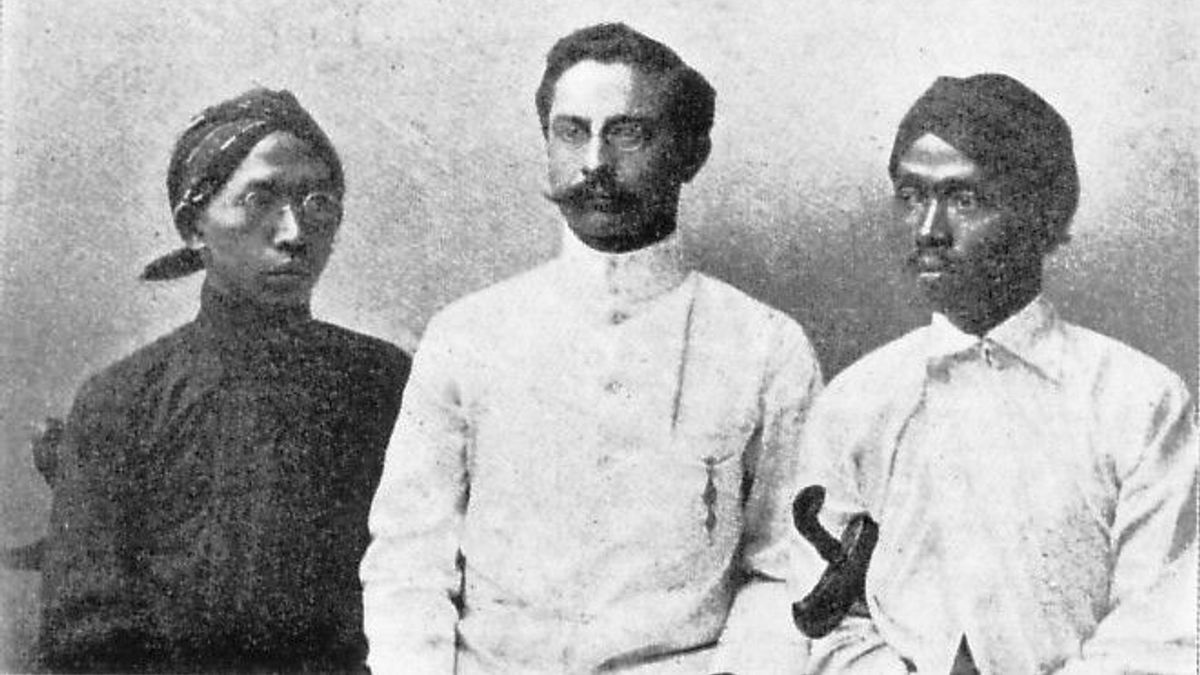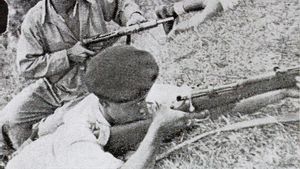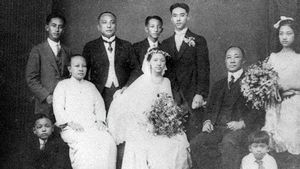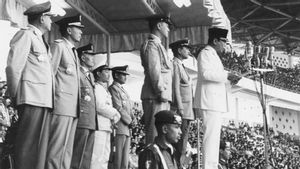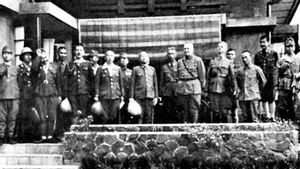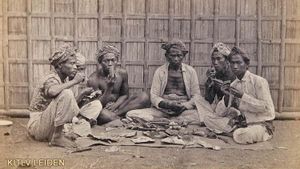JAKARTA – Today's historical event, 109 years ago, on March 31, 1913, the Indische Partij (IP) was forcibly disbanded by the Dutch East Indies government. The disbandment was none other because IP began to interfere with the existence of the Netherlands.
Moreover, the leaders of IP, Ernest Douwes Dekker, Tjipto Mangoenkoesoemo, and Soewardi Soerjaningrat often inflame resistance against the Dutch. The three were then exiled to the Netherlands. Meanwhile, his party which brought the spirit of nationalism to Nusantara was disbanded.
The period of the national movement was the most decisive moment in the history of the Indonesian nation. The founding of the Boedi Oetomo (BO) organization is one of the reasons. The organization which was founded on May 20, 1908, was declared the first national organization in the Dutch East Indies. That year was remembered as National Awakening Day. However, BO who initially had a noble goal of defending the bumiputras began to feel self-exclusive. Limited to the interests of the priyayi (noble).
Those with opposing views opted out of the BO. These included Soewardi Soerjaningrat (later known as: Ki Hajar Dewantara) and Tjipto Mangoenkoesoemo. The two of them did not remain silent. They also made a big breakthrough. Soewardi, Tjipto, together with Ernest Douwes Dekker formed IP on December 25, 1912. People then recognized the three as Tiga Serangkai.

IP became the first nationalist party in the Dutch East Indies. The party was founded with a mission to promote nationalism, indiscriminately. IP does not discriminate against race, nationality, wealth, and position.
Anyone can become a member: Indo, Chinese, Dutch, or native. All Hindians can join. This flexibility makes IP dominated by Indo people who care about the fate of the Bumiputra. The total IP members at that time reached more than 7 thousand people. While the Bumiputra only 1,500 people. This number is proof that the natives were not alone in opposing Dutch rule.
“The idea of the Dutch East Indies for the people of the Dutch East Indies is a new thing for the indigenous people with Western education. The giant meeting held by IP was a new thing that gave Tjokroaminoto a lot of inspiration until he succeeded in becoming the Chairman of the Central Sarekat Islam (CSI).”
“The language that IP used at that time was really shocking. At the grand meeting in Bandung, Dekker announced a declaration of war against tyranny, or a declaration of war against colonial taxpayers against the Dutch, an extortionist state,” said Takashi Shiraishi in the book 1000 Tahun Nusantara (2000).

The presence of IP had a deep impression on all the citizens of the Dutch East Indies. The party was considered a new hope in the world of resistance to Dutch arbitrariness. The roar of resistance made the Dutch take a stand. The Netherlands also wants to dissolve IP. The trio were exiled to the Netherlands for throwing criticism and propaganda.
IP was then officially disbanded on March 31, 1913. IP may be disbanded. However, not in the spirit. The roar of IP resistance inspired many other national figures to fight for independence. Soekarno, one of them. He was so inspired by IP resistance. Even Soekarno made Om Tjip (Bung Karno's nickname to Tjipto) as his political mentor.
“Most importantly, in Bandung Sukarno met and was very impressed with Douwes Dekker and especially Tjipto Mangunkusumo, and grew closer to Ki Hadjar Dewantara. Before being exiled in 1913, the three men had led the radical IP.
"The majority of its members are Indo-Europeans and are the only party that thinks more in terms of Indonesian nationalism than within the framework of Islam, Marxism, or narrow ethnic criteria," concluded Historian MC Ricklefs in the book Sejarah Indonesia Modern 1200-2004 (2005).
Such is today's historical event, March 31, 1913, the disbandment of the Indische Partij. The disbandment actually strengthened the Indonesian resistance movement against Dutch colonialism.
SEE ALSO:
The English, Chinese, Japanese, Arabic, and French versions are automatically generated by the AI. So there may still be inaccuracies in translating, please always see Indonesian as our main language. (system supported by DigitalSiber.id)
